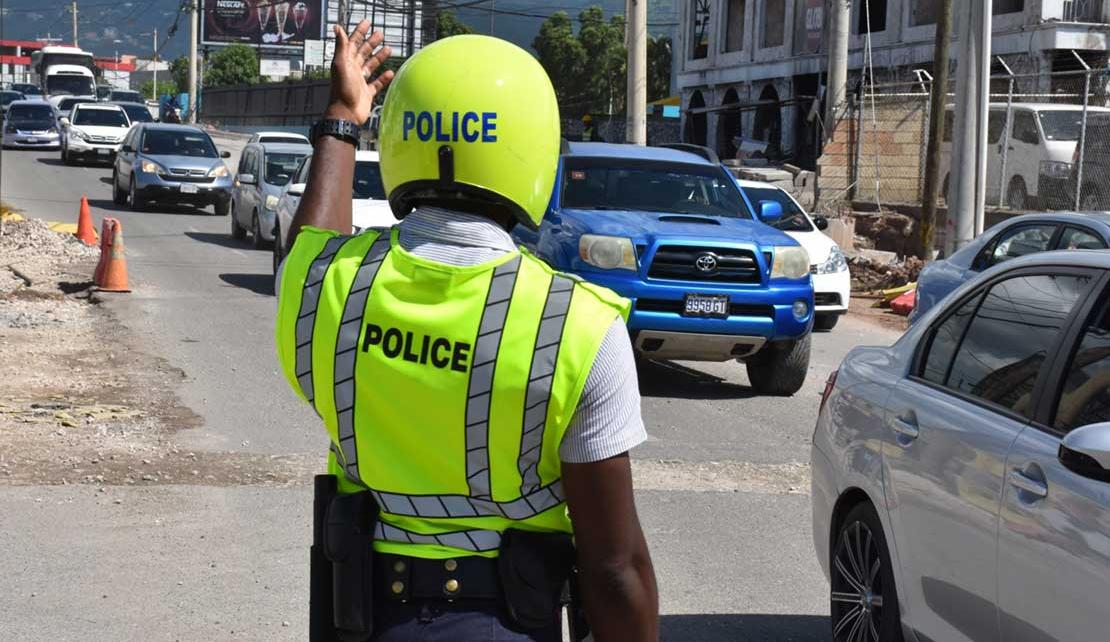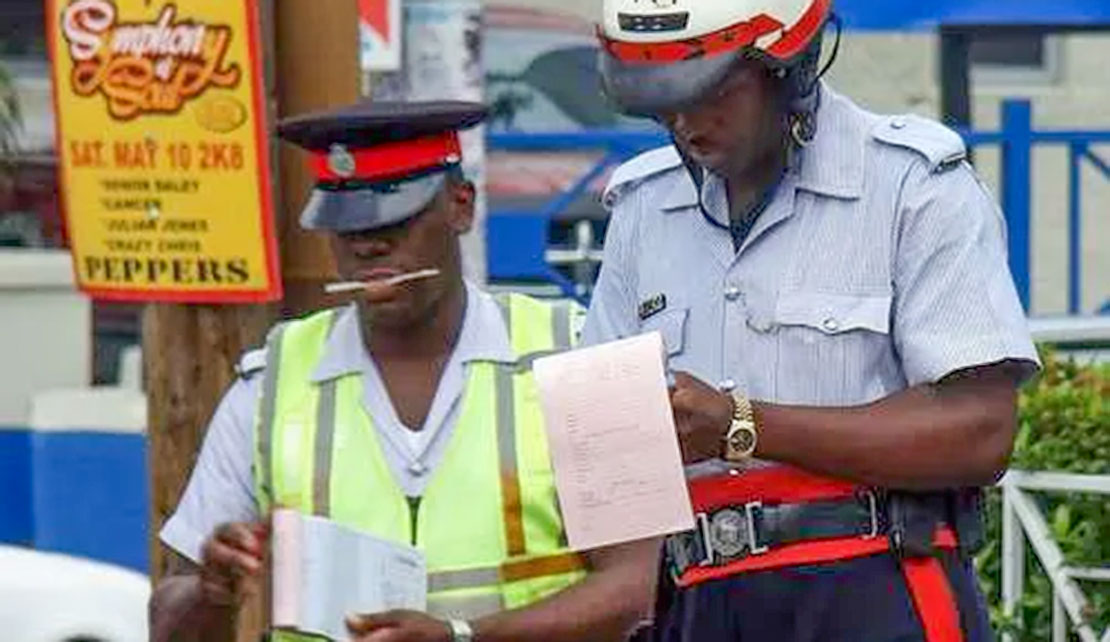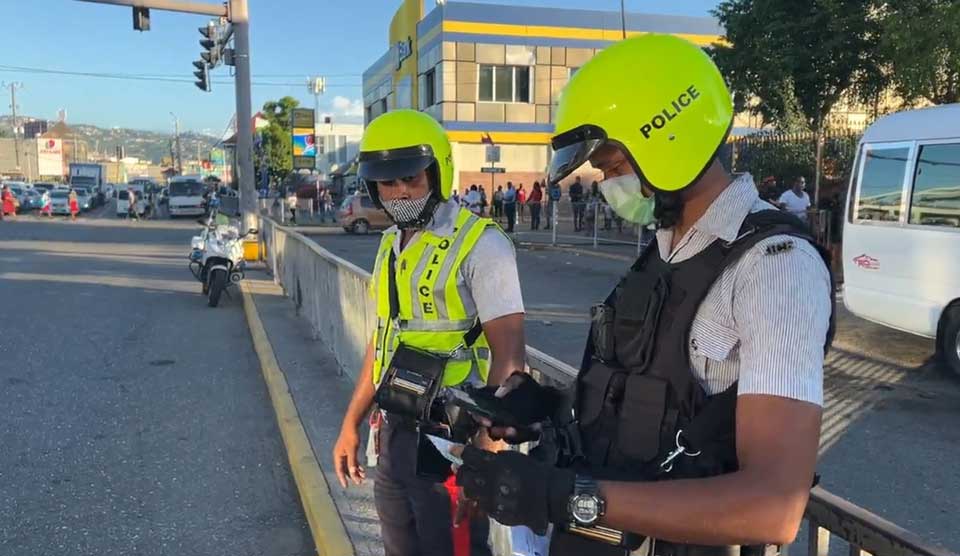JAMAICA | Jamaica's New Traffic Law Faces Public Backlash

Montego Bay, Jamaica, May 14, 2024 - The recent rollout of the amended Road Traffic Act, particularly its provisions on cell phone usage while driving, has sparked a wave of discontent among Jamaican motorists.
With the law now penalizing drivers simply for possessing a cell phone within easy reach, accusations of government overreach and excessive policing are on the rise.
A viral TikTok video has particularly captured public sentiment, alleging that the government's true aim is to siphon off money from drivers through hefty fines, rather than genuinely improving road safety.

This has led to widespread criticism that the law fails to differentiate between dangerous behaviors and benign ones, like using a phone for navigation. In a revealing conversation, a legislator shared an anecdote of being stopped by police and only avoiding a ticket by revealing his status, highlighting inconsistencies in the enforcement of the law.
The National Road Safety Council defends the strictness, citing distracted driving as a grave concern. According to Victor Anderson, the program coordinator, "The position is that you should not be using a mobile phone unless it is in hands-free mode.
This is the basic foundation of the Act." Yet, this has done little to quell the frustration among drivers, who feel that the law's rigid definitions are out of touch with practicalities of modern life. The heavy fines—ranging from $10,000 for a first offense to $30,000 if adjudicated in court—further compound the belief that the penalties are disproportionate.
As the community voices grow louder in their opposition, calls for the Parliament to revisit and revise the legislation are gaining momentum. Motorists argue for a balance between safety and sensibility, with penalties that reflect the severity of the offense rather than blanket punishments for mere possession of a phone.
With public discontent high and legal ambiguities clear, it remains to be seen whether the government will respond to these criticisms with amendments or continue to enforce the controversial provisions as they stand.
The law's critics argue that its provisions are not just harsh but impractically broad, essentially turning everyday drivers into unwitting lawbreakers. This sentiment is echoed by numerous motorists who express that the act of simply having a phone in one's pocket should not equate to the potential for distracted driving.
Such interpretations by law enforcement can seem more like a trap for fines than a measure for public safety.
Adding to the controversy, a recent legislative session highlighted the urgent need for clarity and possible amendments to the Road Traffic Act. Opposition members and civil rights advocates have been vocal, stressing that while the intent to curb distracted driving is commendable, the execution leaves much to be desired.
 They suggest that the law should specifically target the act of physically using the phone while driving, rather than the mere presence of a device, which could lead to subjective enforcement and potential misuse.
They suggest that the law should specifically target the act of physically using the phone while driving, rather than the mere presence of a device, which could lead to subjective enforcement and potential misuse.
The situation is further complicated by insights from legal experts who question the fairness and potential legal challenges that might arise from such stringent regulations.
"The current enforcement of the Act could lead to significant legal battles concerning personal freedoms and the reasonable expectations of privacy and autonomy while driving," one legal analyst suggested. These concerns signal a deeper need for legislative review to ensure that the laws are not only effective but also equitable.
As the debate continues, the Jamaican government faces a critical junction. Will it heed the public outcry and modify the Road Traffic Act to better align with practical enforcement and public acceptance, or will it stand firm on its stringent policies? Only time will tell, but for now, Jamaican motorists continue to navigate a road filled with legal uncertainties.
Incorporating the issue of alleged corruption, the skepticism surrounding the Road Traffic Act is compounded by reports of its misuse for extortion.
Anecdotal evidence suggests that some law enforcement officers may be leveraging the broad scope of the law to unfairly target motorists, leading to accusations of corruption and bribery.
This misuse not only undermines the law's intent but also erodes public trust in the institutions meant to enforce it.

As the government contemplates the future of the Road Traffic Act, it is clear that addressing these corruption allegations is crucial. Effective oversight mechanisms and transparent enforcement practices are essential to restore confidence in the system and ensure that the law fulfills its purpose of promoting road safety without compromising the rights and trust of the citizens it is designed to protect.
As Jamaica grapples with the contentious Road Traffic Act, it becomes evident that the law, while aimed at enhancing road safety, has spiraled into a source of widespread public dissatisfaction and distrust.
 The act's broad stipulations about mobile phone possession have not only inconvenienced drivers but have also opened the door to potential misapplications and corrupt practices by some members of law enforcement.
The act's broad stipulations about mobile phone possession have not only inconvenienced drivers but have also opened the door to potential misapplications and corrupt practices by some members of law enforcement.
The government now faces a crucial challenge: to reform the Road Traffic Act in a way that truly prioritizes safety while also respecting the rights and practical realities of motorists. This will require a delicate balance of clear, focused legislation and stringent oversight to prevent misuse.
Additionally, fostering an environment of transparency and accountability within the Jamaica Constabulary Force is paramount to regain public trust.
As debates continue and the call for legislative refinement grows louder, it is imperative for all stakeholders—lawmakers, law enforcement, and the public—to engage in constructive dialogue.
The goal should be to craft a law that not only deters distracted driving but does so without overstepping into the everyday lives of citizens or becoming a tool for unjust enrichment.
The path forward should be one of comprehensive review and cautious optimism, aiming to ensure that road safety laws protect rather than penalize the Jamaican populace.
Only through such thoughtful revision can the Road Traffic Act serve its true purpose, safeguarding lives on the road while upholding the principles of fairness and justice.
-30-
